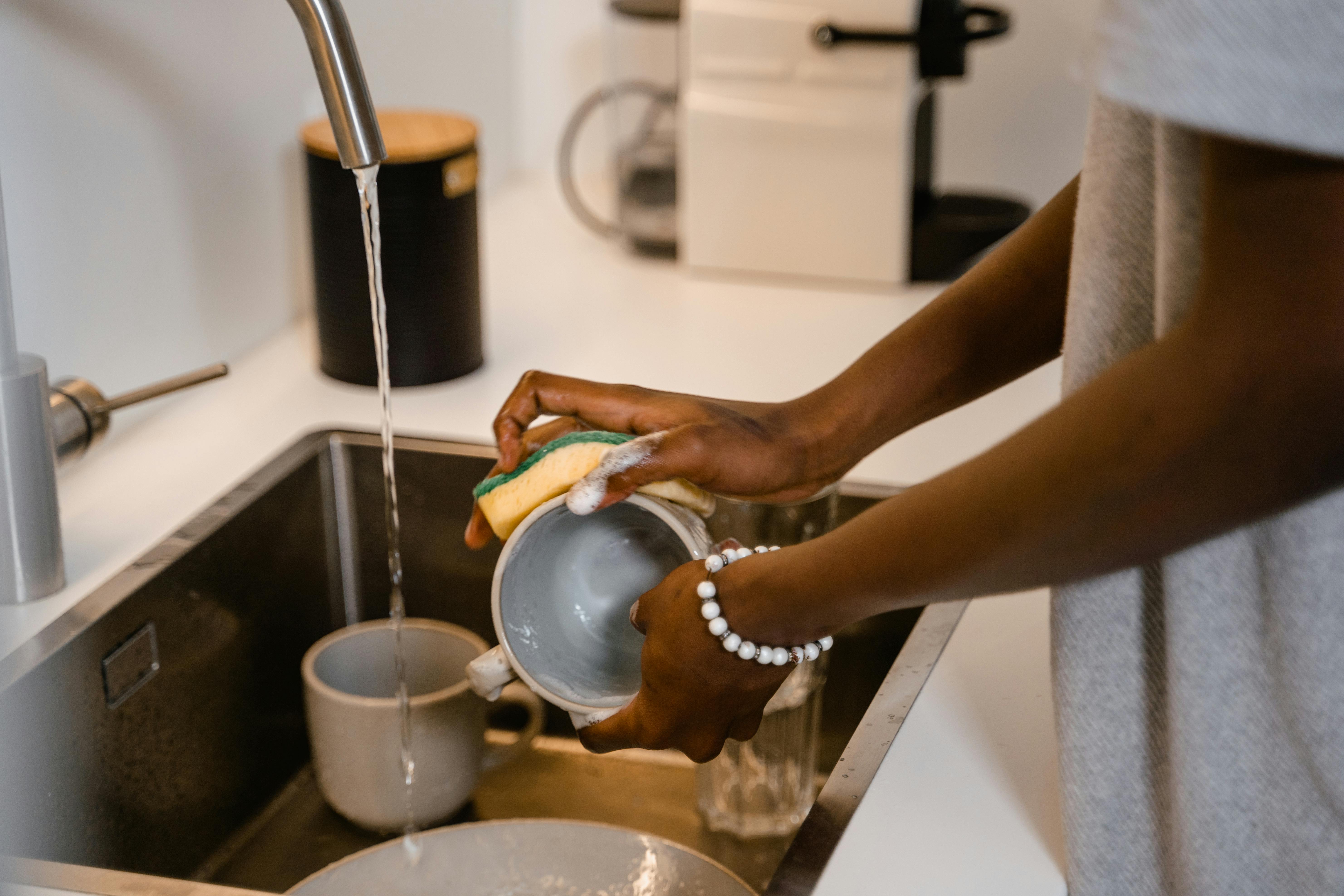
What Your Washing-Up Bowl Can Teach You About Food
What Your Washing-Up Bowl Can Teach You About Food
Ever thought your kitchen sink could teach you more about nutrition than a thousand “heart-healthy” labels in the supermarket? Stay with me — because it can.
Something remarkable happened when I stopped cooking with vegetable oils and switched back to real fats — butter, ghee, and tallow. My pans practically started cleaning themselves.
A splash of hot water, a quick rinse — and the butter residue just melts away. No sticky coating. No scrubbing. No greasy film. No need for half a bottle of detergent.
But if you’ve ever fried something in canola, sunflower, or soybean oil, you’ll know it’s the complete opposite. The pan goes tacky. The oil clings. You scrub and scrub, and still, there’s that stubborn, glue-like residue that won’t come off without harsh chemicals.
Why Real Fats Clean and Industrial Oils Don’t
The difference isn’t magic — it’s chemistry.
Real fats — the kind our grandparents used — are stable. They’re simple structures that melt cleanly and rinse away easily. Butter, ghee, and tallow don’t oxidize easily because their fat molecules are strong and steady.
Industrial seed oils, on the other hand, are fragile. When you heat them, they break apart, react with oxygen, and form sticky, polymerized compounds. In plain English: they literally turn into varnish — the same process once used to make old-fashioned paint.
And if it clings to your pan like glue, imagine what it does inside your body.
From the Pan to Your Body
Now, think about that for a moment.
If a natural fat melts off your cookware with a rinse of hot water, but industrial oil needs chemical detergent to remove it…
👉 What happens when those same oils meet the 98°F heat of your stomach?
👉 What happens when they get absorbed into your bloodstream and built into your cell membranes?
Your body knows exactly what to do with butter. It recognizes it as food. It uses it efficiently for energy, hormones, and cell repair — then lets it go.
But those ultra-processed oils — canola, soybean, sunflower, safflower — are unrecognizable to your biology. They’ve been bleached, deodorized, and chemically altered under high heat. Your body struggles to process them, stores them in your tissues, and wages an uphill battle against the inflammation they create.
That sticky residue on your pan? That’s oxidation.
And oxidation in your body is inflammation — the root of nearly every modern disease.
The Simplicity of Real Food
Your washing-up bowl is trying to tell you something simple:
Real food behaves like real food.
Ultra-processed food behaves like something else entirely.
Butter rinses clean because it’s a natural fat.
Canola oil clings because it’s an industrial product.
When you go back to the fats that have nourished humans for centuries — butter, ghee, tallow, coconut oil — everything starts to make sense again. Your food tastes better, your body feels better, and even your dishes thank you for it.
If your frying pan looks like a varnish experiment after cooking, that’s your cue. The lesson isn’t in the label — it’s in the cleanup.
Real fats clean easy because they belong in your kitchen — and in your body.
Industrial oils don’t — and never did.
Your body knows the difference.
Now your sink does too.
BBHC | Best Body Health Coaching
Where common sense meets real science — and your food behaves like food again.
